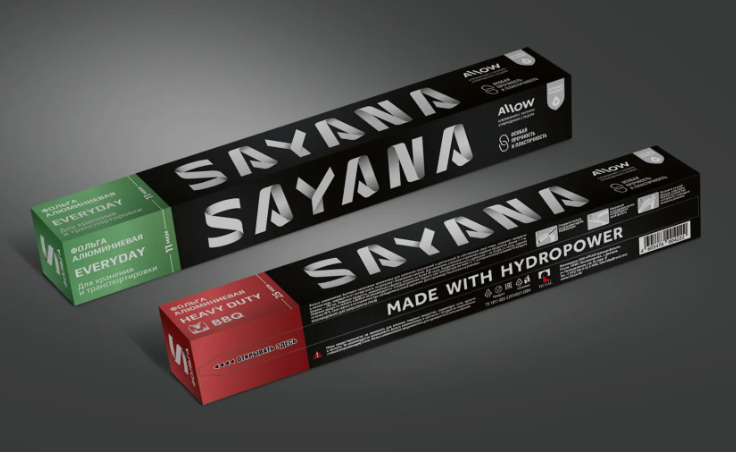Rusal will use ALLOW INERTA aluminium in the production of foil
Rusal, a leading global aluminium producer, announced the start of using primary aluminium with the lowest carbon footprint in the world, ALLOW INERTA, in producing SAYANA foil.

The first 20 tonnes of ALLOW INERTA aluminium have already been shipped from the pilot industrial site of the Krasnoyarsk Aluminium Smelter (KrAZ) to the SAYANAL foil rolling plant, where it will be used in the production of the premium foil brand SAYANA.
“Rusal keeps moving towards carbon neutrality, and we do our best to assist our partners in achieving their decarbonisation goals. We increase production volumes of ALLOW INERTA aluminium. Our extra low carbon footprint aluminium is becoming essential for companies prioritising sustainability goals in their supply chains. By incorporating primary aluminium with the lowest carbon footprint in the world into foil production, Rusal continues to promote the use of materials with the lowest environmental impact among end consumers,” said Roman Andryushin, Rusal's Global Sales and Marketing Director.
The environmental safety of products is increasingly influencing the choice of end consumers. International surveys show that when purchasing, people prefer products whose production has the least environmental impact. For example, according to a study by McKinsey and NielsenIQ, sales of products with ESG characteristics have shown a cumulative growth of 28 per cent over the past five years, while sales of products without such labelling or associated communications have increased by only 20 per cent. By producing aluminium with a low carbon footprint and expanding the use of recycled metal in its finished products, Rusal actively supports the development of a green economy, thus allowing consumers to contribute to this process.
The first batches of ALLOW INERTA aluminium were shipped from the Krasnoyarsk Aluminium Smelter pilot industrial site to the major companies from various industries in 2021. More than 4,100 tonnes of metal were successfully produced during the pilot testing period.
The new technology for producing primary aluminium uses anodes made from non-consumable materials. This innovative approach significantly reduces the level of greenhouse gas emissions during the electrolysis process. The inert anode solution reduces direct and indirect energy emissions (Scope 1 and 2) to just 0.01 tonnes of CO2-eq. per tonne of aluminium. Compared to the industry average of 12.5 tonnes CO2e, this substantially reduces environmental impact.
“The development of inert anode technology is a priority for our Company. It directly corresponds to the principles and objectives of sustainable development. The industrial use of ALLOW INERTA aluminium is gaining momentum, and in the near future, we expect to cover more and more industries by involving our unique product in them,” said Victor Mann, Technical Director of Rusal.
Aluminium foil, often overlooked in our daily lives, is a versatile and sustainable product with many applications. Its demand, consumption, and trade dynamics are explored in depth in AL Circle's latest industry-focused report, “Aluminium Foil and its End Uses Current Trends and Forecast till 2028”. Delve into the comprehensive analysis to gain insights into the global landscape of recycled aluminium, shedding light on its pivotal role in sustainability and its diverse range of uses.
This news is also available on our App 'AlCircle News' Android | iOS




















